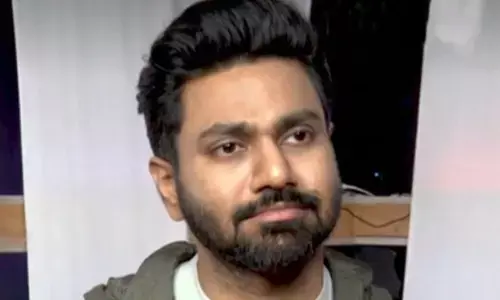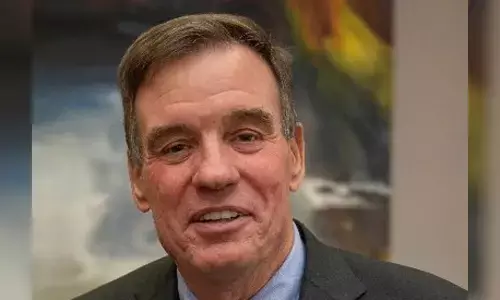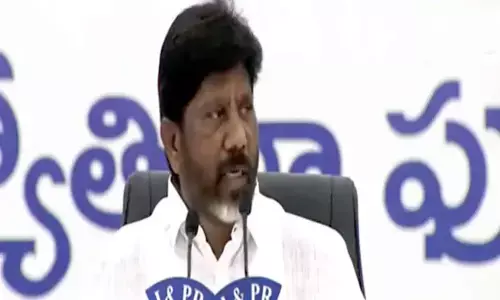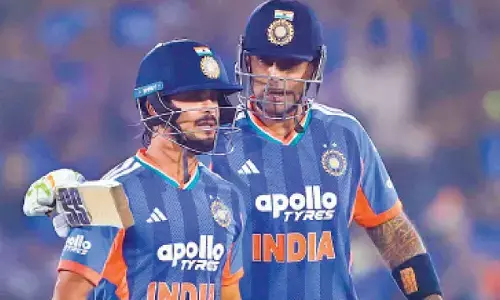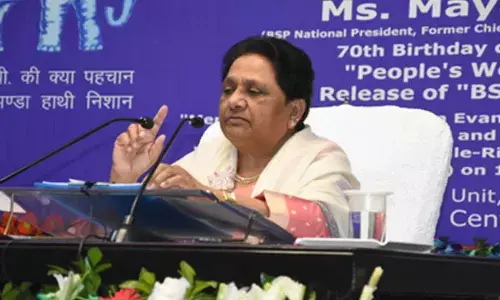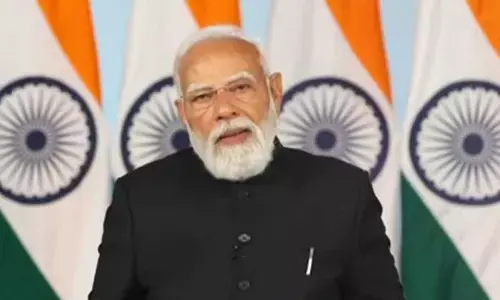All eyes on SC as PIL against First Amendment admitted
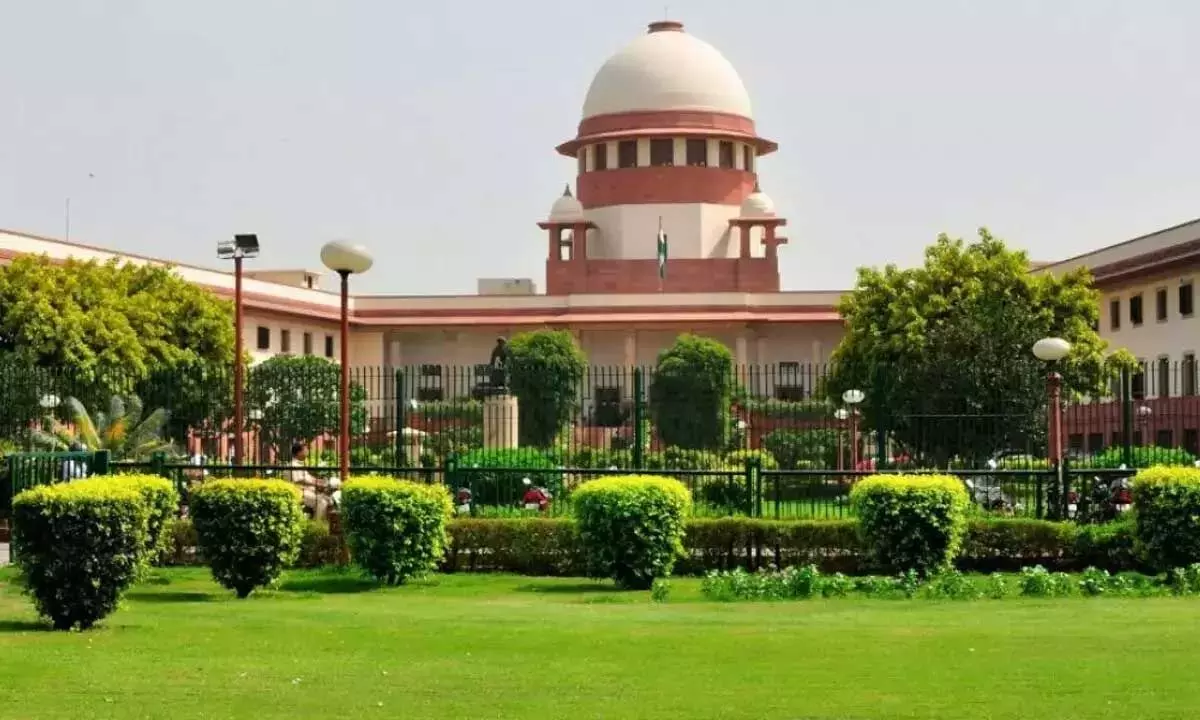
All eyes on SC as PIL against First Amendment admitted
What the petitioner now contends is perhaps against the grain of the founding fathers' philosophy of progress. It is also regressive in a sense that it seeks that 'static' nature to prevail. The interpretation of the Supreme Court now will not only be interesting but also pivotal to the country in enabling its journey towards evolving into a progressive nation
Recently, the Supreme Court has agreed to examine a PIL challenging changes made to the right to freedom of speech and expression by the First Amendment to the Constitution in 1951, with the petitioner contending that the amendment damaged the basic structure doctrine. The bench led by Justice Sanjiv Khanna felt there was a legal issue for consideration and sought the Centre's views.
A bench presided over by Justice Sanjiv Khanna, which took up the plea earlier this month, said there was a "legal issue" which arose "for consideration," and sought the Centre's views. When the First Amendment was introduced, it took more than two weeks for the debate to be concluded on it.
Even before the first general elections under the Constitution of India were held and a duly elected bicameral Union Parliament was constituted, it was deemed necessary to amend the Constitution. The First Amendment Bill was brought forward by the then Prime Minister, Jawaharlal Nehru, himself. He faced a huge criticism over it.
Senior Advocate K Radhakrishnan, the petitioner in the instant, contended that the Amendment unduly abridged the Fundamental Right under Article 19 (1) (a) and damages, inter alia, the supremacy of the Constitution, Republicanism and democracy.
As Jawaharlal Nehru pointed out the bill was not a very complicated one nor was it a big one. But it had an intrinsic and great importance. Obviously, anything dealing with fundamental rights incorporated in the constitution is of even greater importance. Nehru claimed that the bill was brought forward after "the most careful thought and scrutiny given to this problem".
Nehru and his team felt that the amendments mentioned in the bill were not only necessary, but desirable, because otherwise, great difficulties would arise later. The introduction and passage of the bill was not an easy one as there was intense criticism of the same, not only within the country but also in some foreign countries. While dismissing it as irrelevant, Nehru however preferred to say "we welcome the criticism, because in a matter of this kind, the greater the scrutiny the better."
Another contention was that "having been elected on a narrow franchise, not being really representative of the country and of the organized will of the community, it is not justified or it is not proper for it (the House) to deal with such amendments." Nehru did not agree with the claim preferring to call it double speak. If the Constituent Assembly could draft a perfect Constitution, then it had the right to strengthen it further through an Amendment. He felt that nearly one-and-a-half years of learning curve revealed some errors and the same had to be rectified.
While upholding the right of the House to go in for the amendment as there was a lacunae in it, Nehru asserted that as far as the interpretation of the Constitution was concerned, it was the right and privilege of the highest courts of the land to do it. "It is not for us as individuals or even as a government to challenge that right," he said. "The judiciary must necessarily stand above, shall I say, political conflicts and the like, or political interpretations. They have to interpret it in the light of the law and with such light as they can give to it. We respect that and we must obey that" he further elaborated. Having said that he again proclaimed the supremacy of the House as it has to ensure that the will of the people prevailed.
What was the problem the then law makers faced with the Constitution? The Constitution had laid down certain Directive Principles of State Policy and after a long discussion the lawmakers agreed to them as it pointed out the way that the country had to travel. The Constitution had also laid down certain Fundamental Rights. The Directive Principles of State Policy represent a dynamic move towards a certain objective and the Fundamental Rights represented something static, to preserve certain rights which exist, it was felt.
The dilemma then was whether the dynamic nature or quality fits into this static quality. What were the courts supposed to do in times of a clash between the two? This question assumed significance and Nehru sought to know what should be given priority and on what should the stress be laid - the Directive Principles or the Fundamental Rights? Nehru did not have a solution to the problem, but he explained, "the amendment which I seek to move is, to be quite frank with the House, not a solution of the basic problem which will come up before the house in various shapes and forms from time to time. But it does lay stress on one small aspect of it".
Further into the argument there was this clarification too: "The whole conception of the Fundamental Rights is the protection of individual liberty and freedom. That is a basic conception and to know where from it was derived you have to go back to European history from the latter days of the eighteenth century, roughly speaking, you may say from the days of the French revolution which spread on to the nineteenth century....Nevertheless, as the nineteenth century marched into the twentieth century and as the twentieth century went ahead, other additional ideas came into the field which are represented by our Directive Principles of State Policy."
Here is where Nehru drew the line in claiming "if in the protection of individual liberty you protect also individual or group inequality, then you come into conflict with that directive principle which wants, according to your own constitution, a gradual advance, or let us put it another way, not so gradual but more rapid advance wherever possible, to a state where there is less and less inequality and more and more equality. If any kind of an appeal to individual liberty and freedom is construed to mean an appeal to the continuation of the existing inequality, then you get into difficulties. Then you become static, unprogressive and cannot change and you cannot realize that ideal of an egalitarian society which I hope most of us aim at."
As he said in between the debate the amendment did not bring in any offence, any curb or any restraint but it was done only as an enabling measure clarifying the power of Parliament to deal with the matter.
What the petitioner now contends is perhaps against the grain of the founding fathers' philosophy of progress. It is also regressive in a sense that it seeks that 'static' nature to prevail. The interpretation of the Supreme Court now will not only be interesting but also pivotal to the country in enabling its journey towards evolving into a progressive nation.








